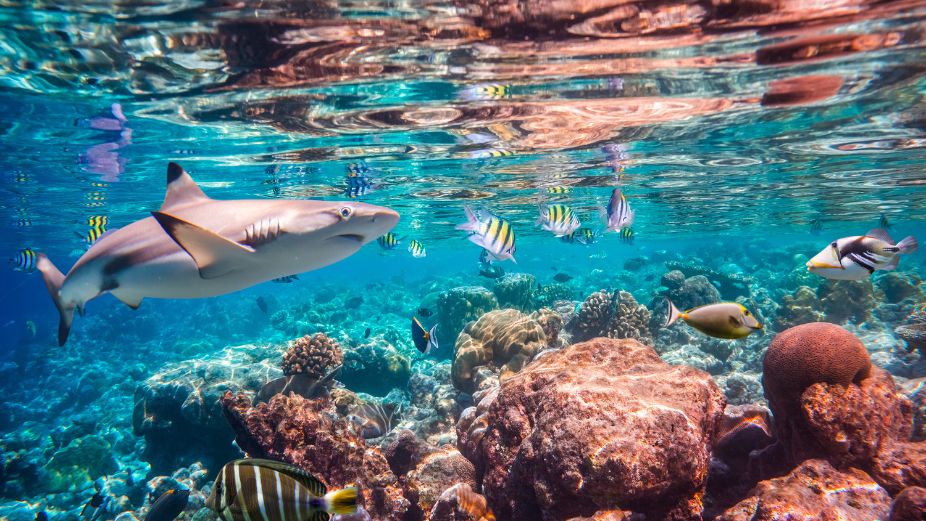
A new national survey has revealed that a significant majority of Maldivians oppose the government’s plan to reopen gulper shark fishing on 1 November 2025, a decision that would end the country’s shark sanctuary status established in 2010.
The poll, commissioned by the Blue Marine Foundation in collaboration with Maldives Resilient Reefs and the Miyaru – Shark Programme, gathered responses from more than 1,000 Maldivian citizens aged 18 and above. Conducted online from 25–29 September, the survey covered both urban and rural areas across all major atolls. According to the Blue Marine Foundation, 77 percent of respondents believe that reopening the fishery would harm the marine environment and the national economy, while 61 percent were aware that the Maldives is one of only 17 shark sanctuaries globally.
The shark sanctuary, which bans all forms of commercial shark fishing, has long been considered one of the country’s most notable conservation achievements and a global example of marine protection. Research indicates that shark diving tourism generates more than USD 14.4 million in direct revenue annually and contributes an estimated USD 51.4 million to the broader economy.
Survey findings also suggest that Maldivians view shark conservation as a shared responsibility, identifying local communities, the national government, and the tourism sector as key stakeholders. Shaha Hashim, Executive Director of Maldives Resilient Reefs, said that reopening gulper shark fishing would pose risks to the environment, economy, and international reputation of the Maldives.
Experts have raised sustainability concerns over the proposal, noting that gulper sharks are slow-growing deep-sea species that reproduce infrequently, making them particularly vulnerable to overfishing. Historical data show that between 1982 and 2002, the gulper shark population in the Maldives declined by 97 percent, causing the collapse of the fishery within a decade.
Dr Iris Ziegler, Head of Fisheries Policies and Ocean Advocacy at the German Foundation for Marine Conservation, said that the draft management plan lacks essential safeguards such as catch quotas or fishing day limits. She warned that without proper controls, mortality rates could exceed sustainable levels, resulting in long-term losses once the fishery collapses again.
Ahmed “Ricky” Mohamed, Co-owner of Oceanic Nomad Divers and member of the Miyaru – Shark Programme, said reopening the fishery would undermine years of progress in conservation. He added that the move could negatively affect shark species that play a central role in the country’s tourism sector.
Conservation organisations including the Blue Marine Foundation, Maldives Resilient Reefs, and Miyaru have called on the government to maintain the shark sanctuary in alignment with its commitments under the Convention on International Trade in Endangered Species of Wild Fauna and Flora (CITES). They argue that continued protection of sharks remains the most effective and economically sustainable path forward.
Dr Judith Brown, Projects Director at the Blue Marine Foundation, said that the Maldives has been recognised as a leader in shark conservation for more than a decade. She noted that reversing this policy would represent a major setback and stressed the importance of safeguarding sharks for biodiversity, tourism, and future generations.








